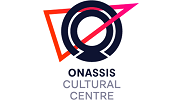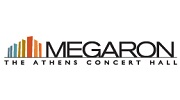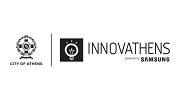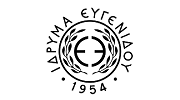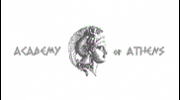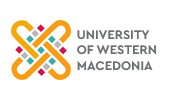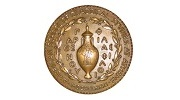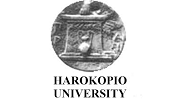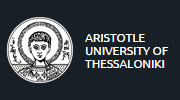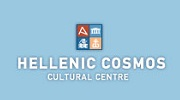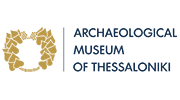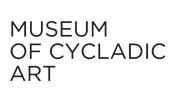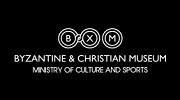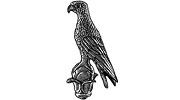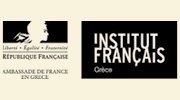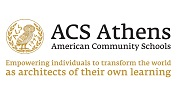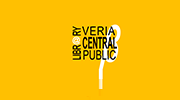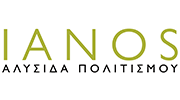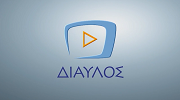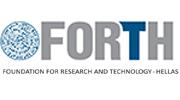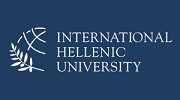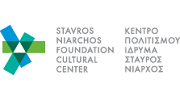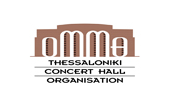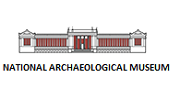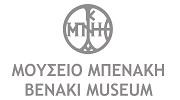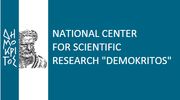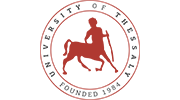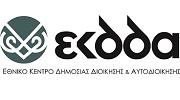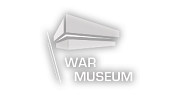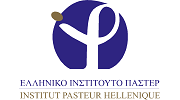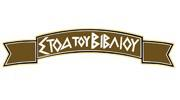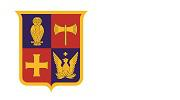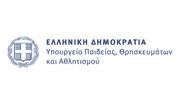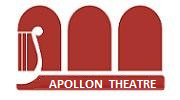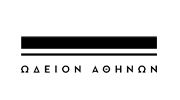ΝΕΟΣ ΔΙΑΥΛΟΣ - Επισκεφτείτε το νέο ιστοχώρο του ΔΙΑΥΛΟΥ στον παρακάτω σύνδεσμο: https://new.diavlos.grnet.gr
Onassis Cultural Centre, part of the Onassis Foundation, is a cultural space hosting events and actions across the whole spectrum of the arts from theatre, dance, music, cinema and the visual arts to the written word, with an emphasis on contemporary cultural expression, on supporting Greek artists, on cultivating international collaborations and on educating children and people of all ages through life-long learning.
The Athens Concert Hall Organization, founded in 1981, is a non-profit-making organization administered by a board of trustees, half of whose members are appointed by the Ministry of Culture, Education and Religious Affairs, and half by the Friends of Music – also a non-profit-making charitable association. The Concert Hall is a creative arena for cultural and educational activities, an arts centre organized along contemporary lines to promote the role of culture in the community. It offers an excellent example of successful collaboration between the state and the private sector.
INNOVATHENS is an integrated hub supporting Innovation and Entrepreneurship where one can meet experienced market executives and academics as well as successful entrepreneurs who will help to work out fully in a practical way a business idea and develop or transform one’s business. Moreover, it provides free access to specialist expertise, information and advice on several areas of interest and alternative ways to build a professional career.
The Eugenides Foundation was established in 1956 as a non-profit-making legal entity in private law. Its purpose was to implement the wishes expressed in the last testament of the late Eugenios Eugenides, a benefactor of the Greek nation. Registered and based in Athens, its founding charter states that its objective is to contribute to the education of young Greeks in science and technology.
The Academy of Athens was founded with the Constitutional Decree of March 18th 1926, as an Academy of Sciences, Humanities and Fine Arts. It is a public entity supervised by the Greek Ministry of Education, Research and Religious Affairs. The objective of the Academy is the cultivation and advancement of the Sciences, Humanities and Fine Arts, along with the communication of the Foundation and its Members with other Academies and fellow Academicians. The Academy conducts scientific research projects in the areas of agriculture, industry, shipping, national economy.
The University of Western Macedonia was founded in Kozani in 2003, under the Presidential Decree No. 92 / 11-4-2003. The first members of the Interim University Administration / Body were appointed under the Ministerial Decision F. 120.61 / 132/61865 / B2 / 25.6.2003.
The School was founded in 1881 by a consortium of nine American universities in collaboration with leading businessmen. Built on land deeded by the Greek government, it was the first American overseas research center, and is now the largest, along with the American Academy in Rome. It is the largest of the fourteen foreign institutes located in Athens.
Harokopio University was the 18th University to be established in Greece, upon the initiative of Professor George Karabatzos. The University bears the name of the national benefactor Panayi Charokopou, a European -minded cosmopolitan, who envisioned an educational institution with excellent building facilities and equipment, operating in harmony with the natural environment, which would provide for a contemporary science learning environment.
The Aristotle University of Thessaloniki (AUTH) was founded in 1925. Today, the University operates a total of 41 Departments, organised into 11 Schools, covering a wide range of scientific fields. AUTH campus extends over an area of approximately 334,000 m2 and is located in the center of Thessaloniki, Greece.
"Hellenic Cosmos", the Cultural Centre of the Foundation of the Hellenic World, is an ultra-modern Cultural Centre and Museum that stands out for its innovative programmes. It is a multifunctional area where visitors experience Hellenic history and culture, while at the same time it is a venue of cultural creation and expression. In its areas a wide range of activities, for people of all ages and interests are organized.
The Archaeological Museum of Thessaloniki is one of the largest museums in Greece and the central museum of northern Greece. All visitors are welcome to experience its unique collections of ancient artefacts as well as its rich and extrovert cultural activities.
The Museum of Cycladic Art was founded in January 1986 in order to house the collection of Nicholas and Dolly Goulandris. It is cultural institution in the heart of Athens.It hosts and organises temporary exhibitions - Archaeological, Contemporary Art, etc.- educational programs, creative activities for parents and children, lectures, workshops, seminars.Through the recent years, it has grown in size to accommodate new acquisitions, obtained either through direct purchases or through donations by important collectors and institutions.
The Byzantine and Christian Museum, which is based in Athens, is one of Greeces national museums. Its areas of competency are centred on but not limited to religious artefacts of the Early Christian, Byzantine, Medieval, post-Byzantine and later periods which it exhibits, but also acquires, receives, preserves, conserves, records, documents, researches, studies, publishes and raises awareness of.
Efforts for the establishment of a university date back to the late pre-revolution period. At that time, prominent Epirot intellectuals had ventured to establish university schools in the region.
Following the foundation of the Society for Epirot Studies (1954), the request for the establishment of a Higher Education Institution, which would affirm Epirus’ cultural background and would promote the city of Ioannina and the wider region in every aspect, held strong.
L'Institut français de Grèce, service de coopération et d'action culturelle de l'Ambassade française en Grèce qui fut créé en 1907, constitue le lien idéal avec la France et offre à ses étudiants ainsi qu’à son public, un environnement francophone unique en Grèce, riche en événements culturels.
The ACS of Athens is a student-centered international school based on Anglo-American educational philosophy, principles and values. Its ongoing goal is to offer excellence in teaching and a variety of quality educational experiences. The ACS Athens encourages students to discover their potential with regards to individual academic and social skills, their spiritual and moral values, and helps them thrive as valuable citizens of the world.
The Veria Central Public Library is a public entity under the auspices of the Greek Ministry of Education. It addresses the residents of the prefecture as well as every citizen who visits and investigates its collections or uses its services.The Veria Central Public Library focuses on the creative use of computing and technology services for the fulfillment of social, educational, and cultural needs for more than 180.000 people.
Greek-based book, music and art retailer with several stores in the two major cities, Thessaloniki and Athens. It was named after the ancient Roman god Janus, as a link to the identity and mission of the company. IANOS sells through its concept-store chain a large variety of books, cds, art objects, periodicals, gifts and stationery. Also, it offers event venues, seminars, art galleries, a publishing house, an art café.
Diavlos Virtual Conference Center is a virtual space portal for content provisioning. It is used for streaming special events organized by and held at third party locations. Such special events provide valuable content, hence they are streamed from Diavlos’ virtual space portal. The portal is also used for occasional events,which may be taking place at third party venues, not registered as content providers in Diavlos’ context.
The Foundation for Research and Technology-Hellas (FORTH), established in 1983, is one of the largest research centers in Greece with well organized facilities, highly qualified personnel and a reputation as a top-level research foundation worldwide. FORTH consists of six Research Institutes, with research and technological focus in areas such as: Microelectronics, Lasers, Materials, Molecular Biology and Genetics, Biotechnology, Computer Sciences, Bioinformatics, Robotics, Telecommunications, Computational Mathematics, Chemical Engineering, Human and Social Sciences, Cultural Studies.
The International Hellenic University (IHU) was established in October 2005 and is based in Thessaloniki, Greece. IHU is Greece’s first public university where programmes are taught exclusively in English. It offers postgraduate studies at international and Greek students in the following three schools: (a) Economics, Business Administration and Legal Studies, (b) Human Sciences, and (c) Science and Technology. IHU’s target is to develop as one of Europe’s leading research and academic institutions.
In 2006, the Stavros Niarchos Foundation (www.SNF.org) announced its plans to fund the development of the Stavros Niarchos Foundation Cultural Center (SNFCC), a project that includes the construction and complete outfitting of new facilities for the National Library of Greece (NLG) and the Greek National Opera (GNO), as well as the creation of the 210,000 m² Stavros Niarchos Park.
The new building for the National Library of Greece (NLG) ( www.NLG.gr ) will modernize an institution founded in 1832, allowing it to strengthen its research role while expanding, at the same time, its focus from an exclusive research facility to an all-inclusive public resource. In its new and enlarged role, the Library will support patrons of all ages and education—from academic researchers to children and young adults destined to become the next generation of users.
Thessaloniki Concert Hall bears the name of a radiant city and appears as an amazing ornament in the city, with a unique building structure. It was funded to provide a solution for the city’s need of a place to hold all artistic events as well as a variety of other activities for the citizens. Since the date it was founded, in 2000, it has held numerous successful concert, theater and opera productions, major event opening ceremonies and international conferences.
The National Archaeological Museum of Greece is one of the most important museums in the world in ancient art. Its collections represent all civilizations that flourished in the Greek area from prehistoric times to the end of the Roman period. It is located in the Exarchia district in central Athens. The land hosting the museum was donated by Helen Tositsa. Its construction began in 1866 and was completed in 1889 using funds from the Greek government, the Greek Archaeological Society and the community of Mycenae.
The Benaki Museum is one of the most widely known museums of Athens. The central Benaki Museum building, located within the neoclassical building of the Benaki family home, was built during 1867-1868 on V.Sofias Avenue, opposite the ‘National Garden’. Its varied and rare Collection is surrounded by an impressive array of cultural activities. Numerous temporary exhibitions, publications, conferences, concerts and educational programmes make the Benaki Museum a multifarious art institution of the 21st century.
The Nuclear Research Centre “Demokritos” was inaugurated in 1961, following the operation of the nuclear reactor research facility. In 1985, it was renamed into its current name, and after a total 50 years of operation, “Demokritos” remains a point of reference as a successful example of a multidisciplinary research center in Greece. The primary objective is the augmentation of the innovation and technology transfer activities in order to contribute to both the National development initiatives and the advancement of research and technology in Greece.
University of Thessaly (UTh) is a Higher Education Institution in Greece, based in Volos city and was founded in 1984. Today, University of Thessaly, with 35 schools and 8 faculties, covers a wide range of scientific fields
The National Centre for Public Administration and Local Government (EKDDA) is the national strategic agent for the development of the Human Resources of the Public Administration and Local Government. It was founded in 1983. It is a Public Entity supervised by the Minister of Interior and Administrative Reconstruction.
The War Museum was established by the Hellenic State in 1964 in order to honor all those who fought for the country's freedom. The relevant study was undertaken by a team of distinguished scientists, headed by Professor Thoukidides Valentis of the National Technical University of Athens (N.T.U.A). On July 18, 1975, the President of the Hellenic Republic H.E. Constantine Tsatsos and the Minister of National Defense Evangelos Averof-Tositsas inaugurated the Museum.
Since its establishment in 1920, Hellenic Pasteur Institute (HPI) remains faithful to its mission, which is the prevention and treatment of Diseases through Basic Research, Education and Public Health Services. The traditional focus of the Institute has been on Infectious Diseases.
Currently other diseases are also under study such as autoimmune, neurodegenerative, neuromuscular, neuroimmune and certain types of cancer.
The Book Arcade was founded in June 1996 by the Society for the Promotion of Education and Learning (Filekpedeftiki Eteria). It is an attempt to create a Cultural Centre in Athens, as a contribution to detecting and reconciling via books, the greatest ideas of the past, present and future.
Hellenic–American Educational Foundation, Athens College, was founded in 1925 by a group of enlightened Greeks with Emmanuel Benakis and Stephanos Delta trailblazing the way as well as with the support of American philhellenes.The Founders’ vision revolved around the creation of a school which fostered the “harmonious development of students’ intellectual, ethical and physical capabilities, in particular their character” by enhancing the existing educational system “with modern pedagogical methods adapted to Greece’s history, traditions, psychology, and national needs.”
The Greek Ministry of Education, Research and Religious Affairs was established on September 23, 2015 and is responsible for governing education, training, research, innovation and religion affairs.
The Municipal Theater "Apollon" is an emblem of the economic and cultural boom of the 19th century Ermoupoli in Syros. It is an architectural gem built in just two years (1862-1864), and has experienced a golden age hosting the stage of distinguished artists and theater troupes from Greece and abroad. In 2014, on its 150 years anniversary, the Theater entered a new era of growth and development offering artistic creation, sustainability and modernization.
The “Athens Conservatoire” (greek: Odeion Athinon) is the oldest educational institution for the performing arts in modern Greece, founded as a non-profit organization in 1871.

